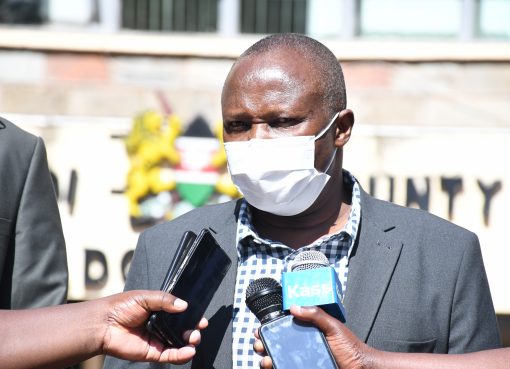The National Museums of Kenya (NMK) is gearing up for the world Kiswahili Language Day celebrations slated for 7th July 2023.
The United Nations Educational, Scientific and Cultural Organization (UNSECO) set aside July 7 of each year as World Kiswahili Language Day.
Kiswahili, a Bantu language with Arabic influences, is the first African language to be recognized in such a manner by the United Nations (UN).
The language dates from the contacts of Arabian traders with the inhabitants of the east coast of Africa over many centuries.
NMK acting Director General (DG) Stanvas Ongalo has launched a series of curtain-raiser activities in the run-up to the Swahili Day celebrations at Swahili Pot Hub in Mombasa County.
Ongalo says Kiswahili language is one of the official languages of the African Union (AU), Southern African Development Community (SADC) and East African Community (EAC).
“It is therefore an indispensable tool in achievement of the Sustainable Development Goals 2030 and in facilitating regional integration,” he said adding that the annual festival would be a stage to showcase the time-honored Swahili culture and heritage.
He said to commemorate this important day, NMK in collaboration with the local Community Based Organizations and the Mombasa Old Town community at large, would be organizing lavish celebrations on July 7, 2023 to be held at the NMK Heritage Training Institute (NMKHTI) formerly Swahili Culture Centre.
Ongalo says the aim is to highlight the importance of Kiswahili language globally and to revive dying traditional Swahili cuisine and handicrafts.
The NMK official says the mission of the annual celebration is to promote the use of Kiswahili language as a beacon for unity, peace and enhanced multiculturalism.
The NMK DG says Swahili is among the 10 most widely spoken languages in the world, with more than 200 million speakers mostly in Africa and the Middle East.
Over the centuries, this Bantu language has emerged as a common form of communication in many parts of sub-Saharan Africa, in addition to the Middle East.
Swahili speakers are spread out in more than 14 countries: Tanzania, Kenya, Uganda, Rwanda, Burundi, the Democratic Republic of Congo, South Sudan, Somalia, Mozambique, Malawi, Zambia, and Comoros and as far as Oman and Yemen in the Middle East.
Southern African countries such as South Africa and Botswana have introduced it in schools, while Namibia and others are considering doing so. More than 100 universities, colleges and schools in the US, Asia and Europe offer Swahili as a course.
“As the State Corporation that manages museums, sites and monuments, we are excited that Swahili has become the first African language to be honoured by the United Nations,” said Ongalo.
He says the international day would be celebrated by all stakeholders, in recognition of the global relevance of Kiswahili as a language of global communication and one that is growing in stature.
He said the theme for this year’s event would be “Kiswahili for Peace, Cohesion and Integration” by embracing, exploring and enjoying the cultural heritage of the Swahili speaking communities.
Ongalo urged Kenyans to embrace the Swahili language and unique culture noting that people are identified by their culture and language.
Swahili Heritage Training Institute Coordinator Khalid Kitito says the annual festival would be marked in a big way and would bring together Swahili speakers and enthusiasts.
Kitito says the Swahili community festival seeks to break diversity barriers, build a credible Swahili speaking people, and celebrate the Swahili culture and its authenticity around the globe.
“The weeklong celebrations will showcase the richness of the Swahili language and culture,” he said, adding that the event would be celebrating Swahili arts, cuisine, crafts, henna paintings, poetry, music, and literature.
Kitito says the festival provides an opportunity for Swahili speakers and enthusiasts to come together to network and celebrate their shared love for the language and culture.
A researcher with NMK Dr. Ahmed Yassin says the original dialects of Kiswahili are fast getting lost, hence they should be reclaimed and revived fast.
Dr. Yassin says there are three important dialects of Kiunguja, spoken in Zanzibar and in the mainland areas of Tanzania; Kimvita, spoken in Mombasa and other areas of Kenya; and Kiamu, spoken on the island of Lamu and adjoining parts of the coast.
“But the standard Swahili is based on the Kiunguja dialect,” he said and underscored the need to promote unity in diversity, understanding, tolerance and dialogue.
By Mohamed Hassan




